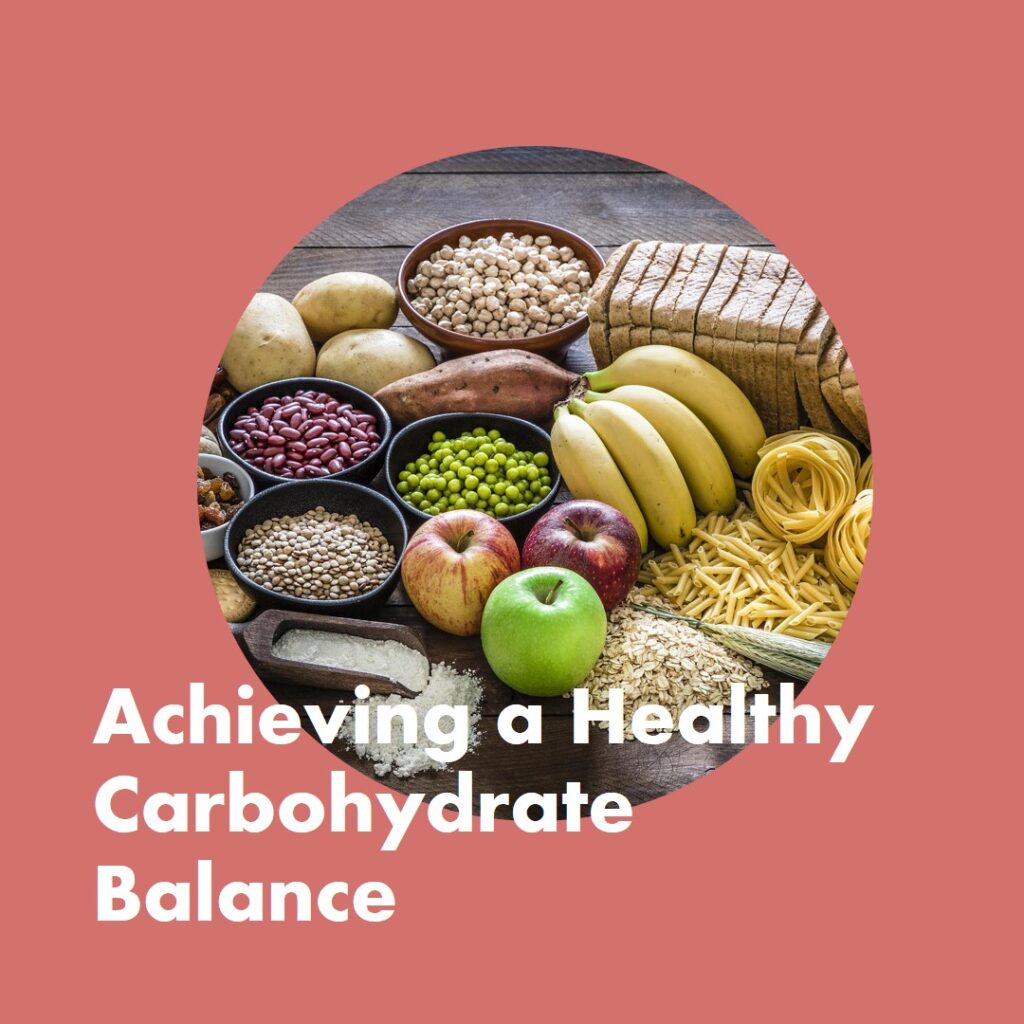Key Takeaways
- Excessive consumption of refined and simple carbohydrates is linked to increased risk of obesity, heart disease, stroke, cancer, and type 2 diabetes.
- Replacing refined grains, added sugars, and starchy vegetables with whole grains, fruits, vegetables, and legumes reduces disease risk.
- Carbohydrates should make up 45-65% of total calorie intake, emphasizing fiber-rich whole foods over refined and processed choices.
- Limiting added sugar intake below 10% of total calories is recommended to reduce risk of weight gain and metabolic disease.

The Risks of Excessive Carbohydrate Consumption
Carbohydrates are an essential part of a healthy diet, providing energy, vitamins, minerals, and fiber. However, excessive intake of refined and simple carbohydrates has been linked to adverse health outcomes. This article explores how overconsumption of low-quality carbohydrates can increase the risk of developing obesity, heart disease, stroke, cancer, and type 2 diabetes.
An Overview of Carbohydrates
Carbohydrates can be divided into simple and complex forms:
- Simple carbohydrates consist of one or two sugar molecules (monosaccharides and disaccharides) like glucose, fructose, sucrose, and lactose. They are digested and absorbed quickly, causing a rapid rise in blood sugar.
- Complex carbohydrates have long molecular chains (polysaccharides like starch) and take longer to break down, providing a slower, steadier supply of glucose to cells.
Additionally, carbohydrates contain varying amounts of fiber, which has health benefits but cannot be digested by the body.
When considering the health impacts of carbohydrates, both the quantity and quality matter. Eating too many refined grains, starchy vegetables, and added sugars appears to increase disease risk, whereas whole grains, fruits, vegetables, and legumes are associated with better health outcomes.

Link Between Refined Carbs and Weight Gain
Excess calories from added sugars and refined grains can lead to weight gain.
Observational studies have found that increased intake of refined grains and added sugars over 4-year periods is associated with greater weight gain, whereas rises in whole grain and fruit consumption are linked to less weight gain 1.
For example, a 100 gram per day rise in refined grain intake was tied to 0.8 kg more weight gain over 4 years. However, a 100 gram per day increase in whole grains was associated with 0.4 kg less weight gain over the same period 1.
These findings held true even after accounting for changes in physical activity, smoking status, medication use, and other lifestyle factors. The associations were also stronger among those who were overweight at baseline.
The likely reasons why refined carbs promote weight gain include:
- High calorie density – Products made with refined grains and added sugars are very energy dense yet lacking in satiety-boosting fiber and volume. This makes it easy to overconsume calories.
- Rapid digestion – Simple sugars are absorbed quickly, triggering fat storage through rising insulin levels. They also fail to suppress appetite for long.
- Craving stimulation – Animal studies suggest refined carbs may light up reward pathways and reinforce addictive-like feeding behavior 4.
In summary, excessive intake of low-quality refined grains and added sugar is consistently linked to increased risk of weight gain and obesity.
Link Between Carbs and Heart Disease
Heart disease conceptual image
Replacing refined carbohydrates with whole grains reduces heart disease risk.
A high intake of refined carbohydrates and added sugars has also been associated with elevated heart disease risk in multiple studies:
- A meta-analysis of cohort studies found that sugar-sweetened beverages were tied to a 22% greater risk of heart attack for every additional serving consumed per day 6.
- Another meta-analysis reported a 27% higher coronary heart disease risk when refined grains replaced just 5% of calories from saturated fats 8.
- In contrast, higher whole grain and cereal fiber intakes have been linked to at least 10-20% lower heart disease risk 10.
The effects of refined carbs on heart disease risk are likely explained by rising blood pressure, inflammation, and unhealthy cholesterol changes they cause when consumed in excess 1214.
Therefore, limiting low-quality refined grains, potatoes, and added sugars while increasing whole grains, fruits, vegetables, and legumes is recommended to reduce risk of developing heart disease.
Link Between Carbs and Cancer
The relationship between carbohydrate intake and cancer risk has been extensively studied:
- Colorectal cancer risk rose by 21% for every 50 unit per day increase in dietary glycemic load (a measure of blood sugar impact) in the Women’s Health Study 16.
- Another meta-analysis associated higher dietary glycemic index (a related metric) with 11% greater breast cancer risk 18.
- In contrast, total fruits, non-starchy vegetables, and whole grains were linked to reduced cancer risk in multiple studies 20.
These findings suggest that diets emphasizing low glycemic foods like whole fruits and vegetables are beneficial, whereas high glycemic refined grains and potatoes appear harmful.
Proposed mechanisms relate to effects on insulin resistance, inflammation, and oxidative stress that promote tumor development when refined carbs are overconsumed chronically.
Link Between Carbs and Diabetes
Type 2 diabetes risk also rises with high intake of refined grains, potatoes, and added sugars:
- Each additional daily serving of sugar-sweetened beverages was tied to a 22% greater risk of developing diabetes over 10 years in the Nurses’ Health Study 24.
- Total carbohydrate and glycemic load were also positively associated with type 2 diabetes risk in a meta-analysis of cohort studies.
- Conversely, whole grains, cereal fiber, fruits, and vegetables appeared protective against diabetes development.
These relationships are likely mediated by effects on insulin resistance and pancreatic beta cell function, which are disrupted by chronic overconsumption of high glycemic refined grains and added sugars [].
Therefore, limiting intake of low-quality refined carbohydrates while emphasizing whole plant foods is recommended to reduce risk of developing type 2 diabetes.

Achieving a Healthy Carbohydrate Balance
Based on extensive research, excessive intake of refined grains, starchy vegetables, and added sugars should be limited to reduce risk of developing weight gain, heart disease, stroke, cancer, type 2 diabetes and associated complications.
However, whole grain carbohydrates from cereals, fruits, vegetables, nuts, seeds, and legumes have health and longevity benefits.
The 2020 Dietary Guidelines for Americans recommend that carbohydrates comprise 45-65% of total calorie intake, with special emphasis on fiber-rich whole food sources. Additionally, limiting added sugar intake below 10% of total calories is advised.
Achieving this balance of quality complex carbohydrates not only promotes healthy weight and blood sugar levels, but also appears to reduce risk of developing numerous chronic diseases that are major causes of death globally.
Frequently Asked Questions
What are the different types of carbohydrates?
There are two main types of carbohydrates – simple and complex. Simple carbohydrates like glucose, fructose and lactose have just one or two sugar molecules. They are digested and absorbed quickly. Complex carbohydrates like starch and fiber have longer molecular chains and take more time to break down.
Is a carbohydrate a macronutrient?
Yes, carbohydrates are one of the three macronutrients that provide calories. The other two macronutrients are protein and fat. Carbohydrates should comprise 45-65% of total daily calories according to dietary recommendations.
Which carbohydrate foods are healthy?
Carbohydrates from whole fruits, vegetables, whole grains, legumes, nuts and seeds are healthy choices. They provide vitamins, minerals, fiber and beneficial plant compounds in addition to carbohydrates.
Which carbohydrates should I limit for good health?
You should limit intake of refined grain products, starchy vegetables like potatoes, and added sugars. These low quality carbohydrates are digested quickly and linked to weight gain, heart disease and diabetes risk when consumed in excess.
How much carbohydrate should I eat every day?
According to dietary guidelines, carbohydrates should provide 45–65% of your total daily calories. So if you eat a 2000 calorie diet, aim for 225-325 grams of total carbs daily from nutritious whole food sources like fruits, veggies, whole grains and legumes.
References
: https://www.mdpi.com/2072-6643/7/3/1388
: https://www.mdpi.com/2072-6643/7/3/1388
: https://care.diabetesjournals.org/content/30/12/2813
: https://care.diabetesjournals.org/content/30/12/2813
: https://www.bmj.com/content/349/bmj.g5429
: https://www.bmj.com/content/349/bmj.g5429
: https://www.ncbi.nlm.nih.gov/pmc/articles/PMC3971121/